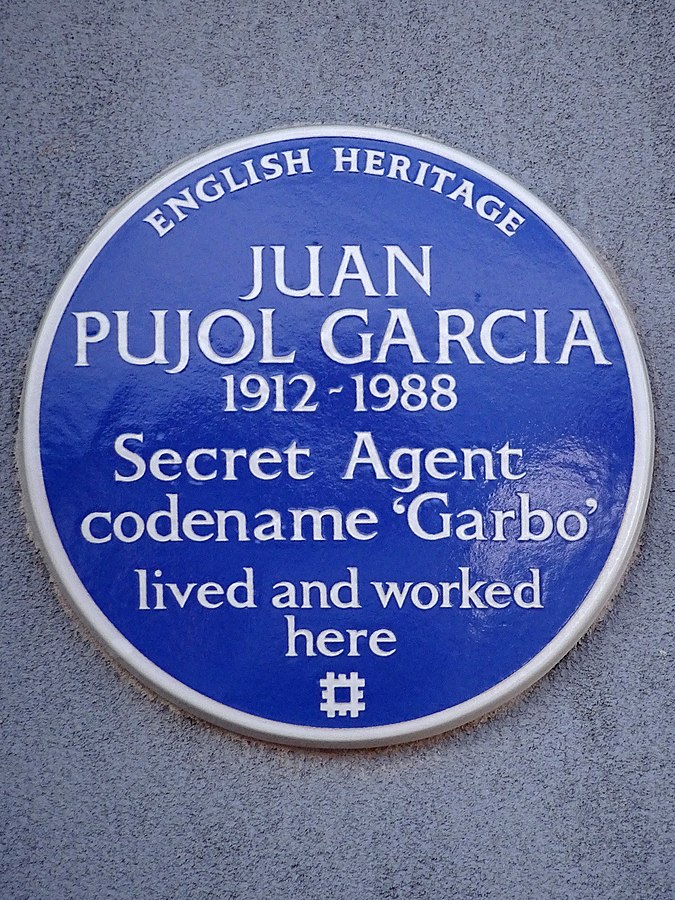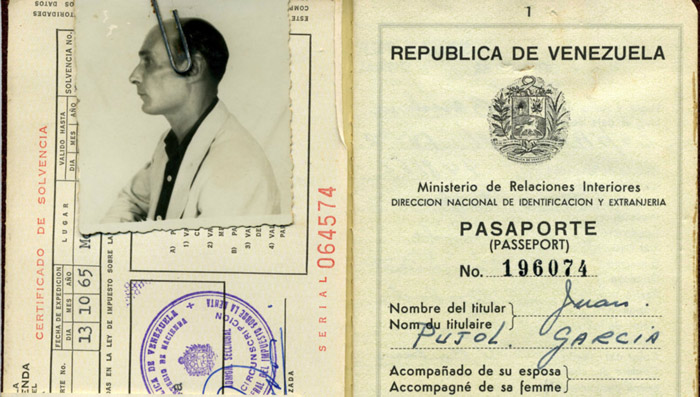Reality often surpasses even the most complex fiction that people read in books or watch in Hollywood movies. Juan Pujol García managed to lie to the Nazis for years with delayed or misleading information. The agent, known to the British as Garbo and to the Germans as Arabel, designed a network of fake spies who were paid by the Nazis, but only ever existed on paper.
In these weeks when the horrors of war continue to be seen, it is worth remembering the life of Pujol, a man who – without firing a shot – became an important figure in the events of World War II. Even so, in his last days of life, his children recall how his eyes filled with tears as he remembered the lives he was unable to save.
The ability to lie that earned him recognition from both sides
In his early days, the success of this spy was not related to military intelligence deployment, but instead to Pujol’s histrionic writing and inventive abilities. Several books have been published about his life, one of which he co-authored with Nigel West.
In the texts, the role of this double spy was described as essential to obtain important advances in the war, through incorrect messages sent to the enemy. He was never discovered by Hitler; in fact, Pujol had the honor of being the first person to be decorated with the German Iron Cross and the Order of the British Empire, both in 1944.
The espionage network design essential to his role
His capacity for deception and acting earned him his nickname in reference to the actress Greta Garbo. Pujol’s made-up stories had great detail of regiments and naval maneuvers, with which he managed to deceive the Nazis on several occasions without them suspecting him when they found out that the information was incorrect.
One of his most essential roles was in the Normandy landings. The information he provided to the Germans helped turn the tide of the war. With his data he kept the enemy troops fooled, while providing them with certain evidence that made them believe his messages were reliable.
Garbo’s imaginary secret service network had twenty-seven active spies, all of whom had names, nationalities, jobs, places of residence, personalities, ideologies and a totally invented life. None of them existed and the Germans never suspected, due to the attention to detail that made these agents credible. To create the information network, he had Tommy Harris and MI5 as allies.
On one occasion they simulated the death of one of the imaginary agents and published an obituary in the newspaper. The story was so real for the Germans that they decided to send money to a widow who also did not exist.
The early days of Arabel-Garbo and life in war-torn London

The spy first tried to work for the British, but had no luck. For that reason, he devised the plan to first contact the Germans with inaccurate information. When the British intelligence service intercepted these messages, they became suspicious of agent Arabel and recruited him into their lines so that he would eventually become a double agent. His wife, Araceli Gonzalez, played a key role in this approach that Pujol had been seeking for months.
At first, Garbo sent the messages to the Germans from Lisbon, pretending to be in England. When he joined MI5, he moved to London. The declassified case files show how hard it was to go underground in a wartime environment. Mrs. Garbo collapsed emotionally with loneliness. She could not contact her friends in Spain by correspondence, was forbidden to interact with the Spanish community in London and was excluded from the spy network despite her initial help, and this pushed her into behavior they considered erratic for a time.
“These files document much of the extraordinary success of Garbo as an agent, however they also reveal the human cost. In this case it was Garbo’s wife who paid the greatest price for her husband’s work. At the height of a bloody conflict it is easy to understand why Garbo and MI5 took such a tough line, but it is difficult not to feel sympathy for Mrs. Garbo, and admiration for her role in one of the greatest deceptions of the 20th century,” concludes the National Archives blog.
The spy who faked his death
One of Garbo’s daughters, María Kreisler, launched a website where she reveals the story about her father. There, she recounts his childhood in Spain, jobs in the management of a poultry farm and later in a hotel, his political views, desertion from the civil war because of his ideas, arrest for desertion, life in hiding and details of his days as a spy.
When the war ended, Pujol decided to go to South America because he thought that the alliances could be fragile and another war could break out. However, beforehand, he started a work to infiltrate the Germans again, to spy on the Russians, and in those days he visited his old contacts in Madrid.
Garbo-Arabel lived his last years in Venezuela. From 1948 onwards, he spread the rumor of his death to avoid reprisals from the Nazis. He came back to life in 1984, when he was contacted by author Nigel West, at which point he received a personal tribute from the Duke of Edinburgh. It was a surprise for his children in Spain to hear that their father was still alive, while for his family in Venezuela it was a shock to learn about Juan Pujol’s past as a spy.
Pujol’s fictitious network demonstrated the power of information, of structured lies, of the creative capacity and the benefits that a key person can bring to an alliance. Pujol was never discovered by the Germans, he kept up the charade until the end, deceiving all those who considered him a faithful supporter of the Führer.

